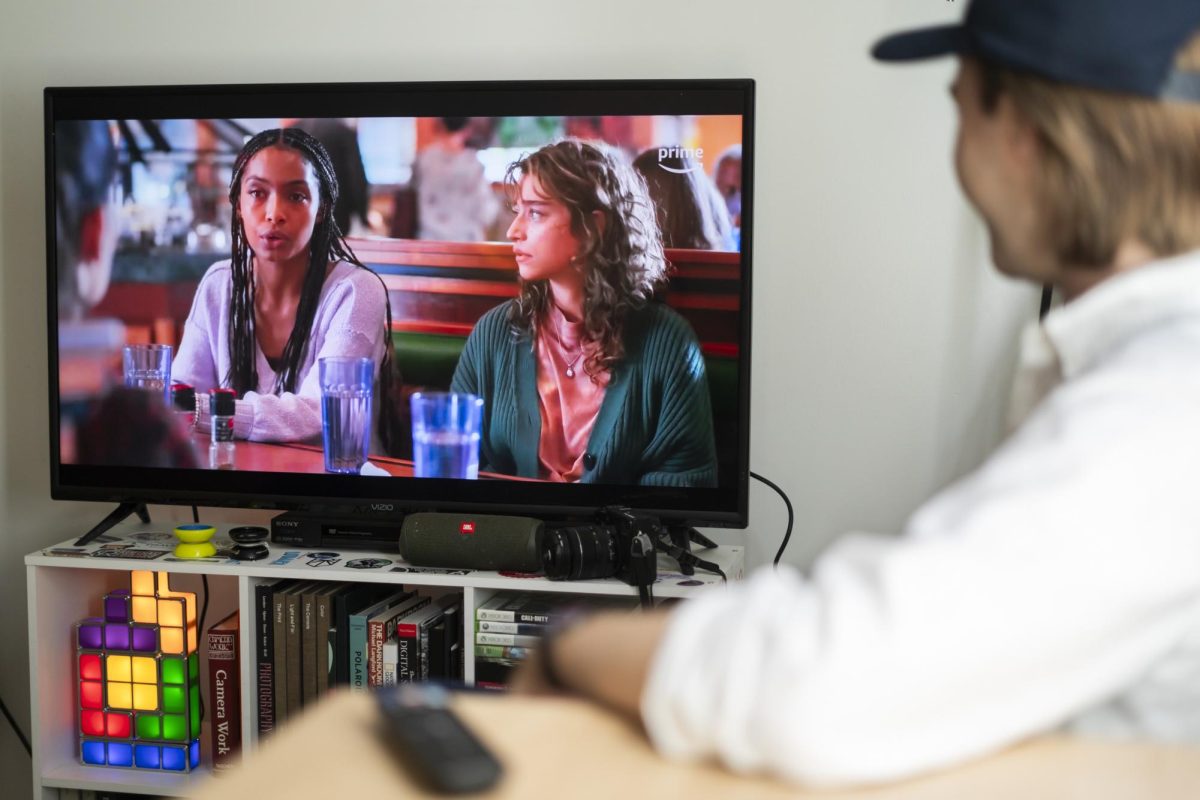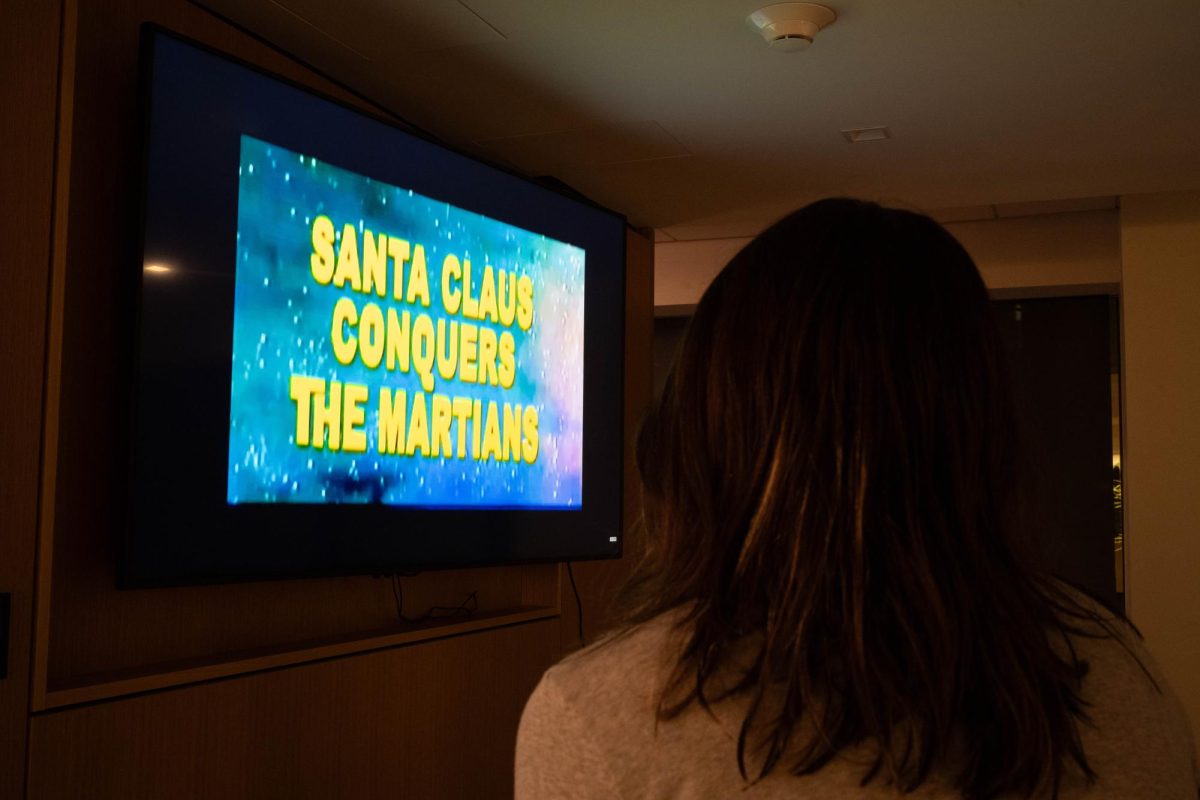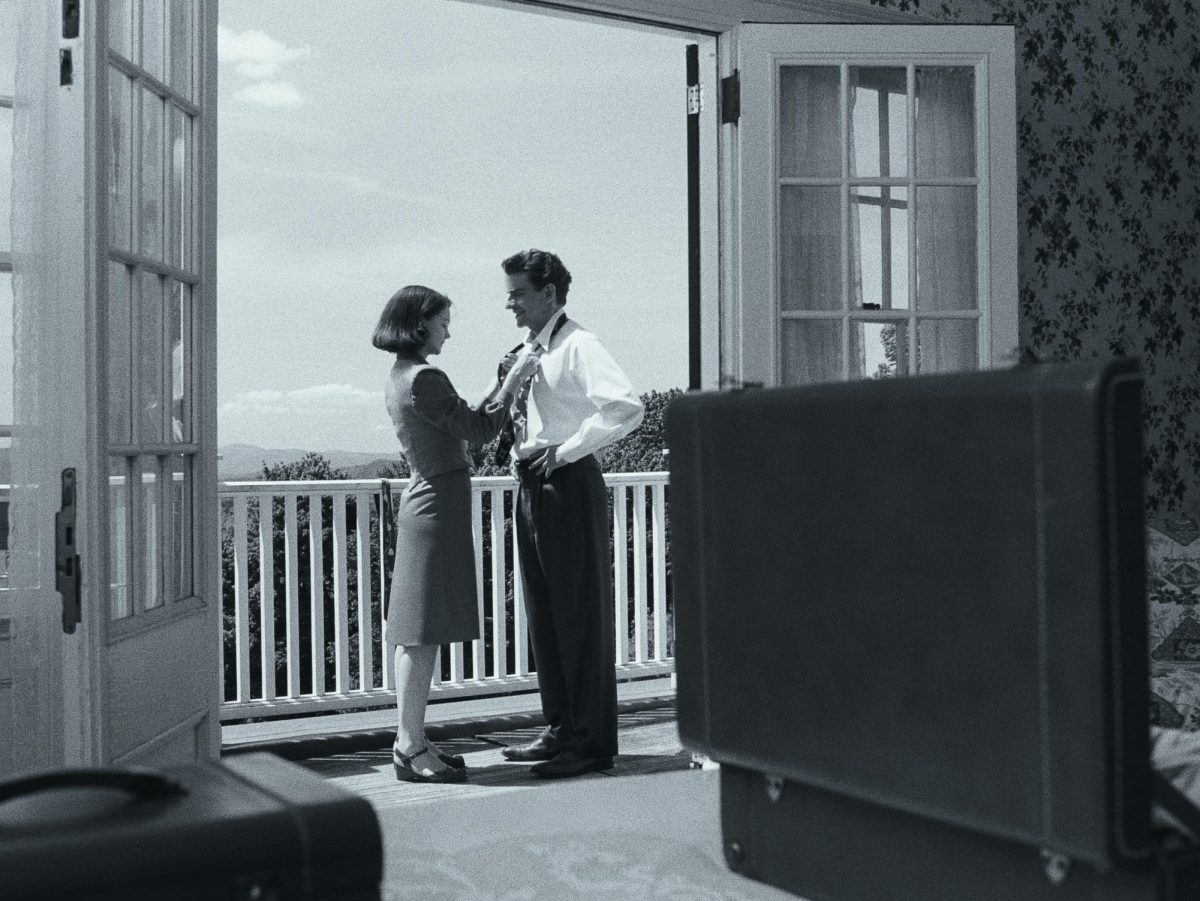If just a spoonful of sugar helps the medicine go down, what could an entire cake do?
“Sitting in Bars with Cake” explores this question through the power of sweet treats and female friendships by retelling a year of its screenwriter, Audrey Shulman’s life.
After being challenged by her best friend to bake 50 cakes and bring them to bars around Los Angeles as a way to find a boyfriend, Shulman chronicled her misadventures in a part-cookbook, part-memoir story. This on-screen adaptation of the same name is a mixed bag, incorporating delectable cakes but lacking in coherent, substantial storytelling.
The film follows Jane, a baker and aspiring law student who works in the mailroom of a record label, and her roommate and best friend, Corinne, who is an agent at the same company. The pair work together to bring the introverted Jane out of her shell and find a boyfriend by luring men their way through elaborately baked cakes. But the budding rom-com quickly transitions into an intense melodrama about friendship and self-discovery after Corinne is diagnosed with brain cancer.
The film’s opening sequences establish the sisterly dynamic between Jane, portrayed by Yara Shahidi, and Corinne, played by Odessa A’zion. Jane is the organized, awkward, yet talented baker eager to discover herself, while Corinne is an outgoing party girl who wants the best for Jane. These two have undeniable on-screen chemistry, as their lines naturally bounce off each other, creating a lighthearted atmosphere.
The pair come up with “Cakebarring,” a plan to bring cakes to bars around Los Angeles to lure boyfriend candidates for Jane. This leads to not only a display of the decadent cakes for the audience but also a series of comedic events with each bar encounter. Seeing the degree to which men will bend over backward for some cake at a bar is a good laugh. The sets were also oddly enthralling — from a tiki bar to a psychedelic club, the designs are a sight to behold. Each bar they go to has its own theme and cake to match and are visually distinct enough to sell the idea of going to different bars to meet various types of men, from line-dancing cowboys to debaucherous bachelor parties.
In spite of this feel-good opening, Corinne’s serious diagnosis of brain cancer leads the film into an uneven and weirdly paced second half. In multiple scenes, Corinne and Jane have spats that seem like big to-dos at the time but get resolved, often in the very next scene, and amount to nothing in the long run. The movie seems to have left behind what it was good at: the playful dynamic between the leads, trading it for manufactured tension between them. A dark overcast hangs over most of the scenes in the second half, as the humor abruptly and completely disappears with no transition.
Jane briefly secures a love interest in the first act, work fling Owen, only for him to be forgotten as the movie drags on. A clear “good guy” character, Owen works in law and is kind to Jane, unlike the other men viewers are introduced to. The audience is led to root for the couple, but their storyline is suddenly interrupted in the second half as the focus completely shifts to Corinne and Jane. The film sets up so much in the first act, but by shrinking its scope to essentially two characters, it leaves it all in the dust.
The movie does not mince scenes when it comes to its true intent, which is to make viewers bawl their eyes out. In one scene, Jane and Corinne lie next to each other for what seemed like hours, declaring their platonic love to each other. Sure, scenes like this one are tearjerkers, but this manufacturing of emotion felt cheap. The scene in itself squeezes pity from viewers for the situation itself, the horror of losing a friend, rather than through any profound writing or acting.
In another scene, the pair spill their guts out to each other in an exceptional display of trauma dumping, with Jane revealing that she never wanted to go to law school. This is played off as obvious, though it’s never implied to the audience. The decision to focus on two people talking out important plot details rather than showing or acting them out removes the punch from the big reveal.
All of that said, I couldn’t help but shed a few tears at the end of the film for the loveable characters and friendship I spent nearly two hours with.
If you’re in need of the sweet release of a good crying session, look no further than “Sitting In Bars With Cake,” but don’t expect it to crop up at the Oscars next year.








